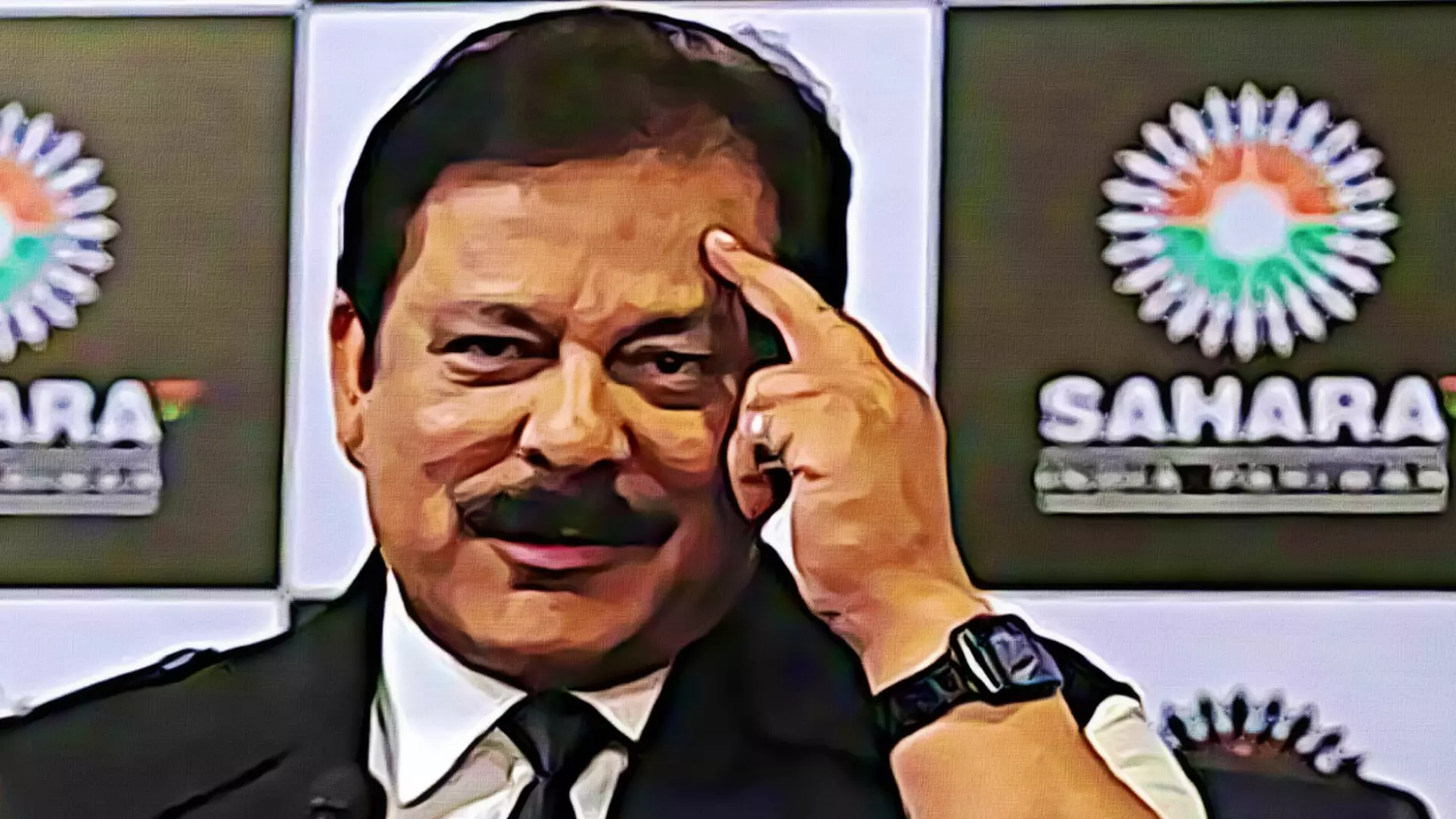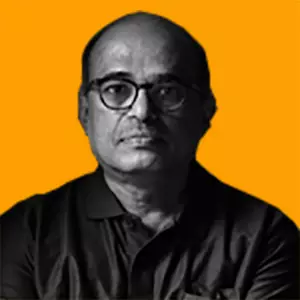
- Home
- India
- World
- Premium
- THE FEDERAL SPECIAL
- Analysis
- States
- Perspective
- Videos
- Sports
- Education
- Entertainment
- Elections
- Features
- Health
- Business
- Series
- In memoriam: Sheikh Mujibur Rahman
- Bishnoi's Men
- NEET TANGLE
- Economy Series
- Earth Day
- Kashmir’s Frozen Turbulence
- India@75
- The legend of Ramjanmabhoomi
- Liberalisation@30
- How to tame a dragon
- Celebrating biodiversity
- Farm Matters
- 50 days of solitude
- Bringing Migrants Home
- Budget 2020
- Jharkhand Votes
- The Federal Investigates
- The Federal Impact
- Vanishing Sand
- Gandhi @ 150
- Andhra Today
- Field report
- Operation Gulmarg
- Pandemic @1 Mn in India
- The Federal Year-End
- The Zero Year
- Science
- Brand studio
- Newsletter
- Elections 2024
- Events
- Home
- IndiaIndia
- World
- Analysis
- StatesStates
- PerspectivePerspective
- VideosVideos
- Sports
- Education
- Entertainment
- ElectionsElections
- Features
- Health
- BusinessBusiness
- Premium
- Loading...
Premium - Events

Akin to a chameleon, the Sahara founder changed colours off and on, just like his projects, which appeared and disappeared; but Roy always made money
Subrata Roy 'Saharasri', whose sudden rise to immense wealth was watched with fascination, scepticism and curiosity over the last three decades, was a maverick who always skirted dangerously on the borderline between the legal and illegal, crime and morality.
Roy, 75, who died on Tuesday (November 14), consistently dared the many laws of finance, banking and the criminal code itself. In the end, no one knew where and how he accumulated his wealth, variously stretching between Rs 25,000 crore and Rs 1 lakh-crore, and who his actual depositors were. His money and his life were all behind an iron curtain and only rumours escaped off and on.
Roy built his wealth no doubt by working hard. In-house magazines often had pictures of him standing on street sides in Uttar Pradesh’s Gorakhpur with small gifts on the table and a few utterly poor people squatting beside the table, to whom he was selling various dreams of wealth and a secure future through his chit fund and various deposit schemes. That way he soon realised wealth is accumulated by luring the poor and not the rich.
For over three decades the story he said was that people trusted him. Actually, the poor people of Uttar Pradesh, Bihar and Rajasthan, who deposited a part of their sweat-drenched daily wages into many of his various schemes, had no option but to trust him. For, once they put in their money, there was no way you could get it back. People who went to collect money were either coerced to redeposit or, in the end, threatened.
Very few of the millions of poor or lower middle class who deposited got their money back or the houses they were promised. This writer too had deposited some money in a scheme for employees but was lucky enough to get it back after three years with the help of a friend within the organisation.
Capacity to speak
Everything was maya. Only Subrata Roy was real and rich and flamboyant.
What was the talent that he had? Nothing really but an ability to speak for hours on end. Those like this writer, who worked for his media organisation, were baffled by his eccentricity, his sheer ignorance about media, for instance, and his bravura speeches. One such speech of Roy on Republic Day, which this writer listened to in his Noida media office, lasted an hour. During that time you could not leave or doze off. Those who dozed off during one of his long winding and meaningless speeches that lasted over two hours lost their jobs. His various thoughts were also put together in a huge book and employees were sometimes summoned to answer questions from his book. The fate of those who did not know the answers was obvious.
Roy was dictatorial and loved to catch hold of some people and place them in high posts and then without any fuzz post them back to the transport department. No department or office of his was professionally run, and very few had managerial qualifications. He ran them all by his whims and fancy. Black and white uniforms and tie were prescribed along with black shoes on Fridays and Saturdays. One colleague who wore a brown shoe found his salary cut by half. All his offices were full of paid and unpaid spies who reported all deviant behaviour and faded shoes back to headquarters.
A senior officer of the Mumbai office of Sahara who said he was quitting was threatened over the phone by Roy himself. In fact, all companies who bid for his 10,000-acre Amby Valley project in Lonavala in a court-supervised auction were threatened against bidding or going ahead. To date, Amby Valley remains unsold. Here, too, no one knows who the real depositors were though Rs 62,643 crore was collected through four Sahara cooperative societies, according to available information.
In those days, it was a familiar sight to see Sahara employees walking along the roads of cities and villages in UP, Rajasthan and Bihar, wearing the familiar black and white uniforms, to collect or maybe coerce money from depositors. It was like a route march of destruction.
Indian cricket team sponsor
Roy’s life was a camouflage, just as his finances and his companies were mostly without any foundation or project reports or proper financing or planning. Like a chameleon, he changed colours off and on, just like his projects, which appeared and disappeared. Once he announced a huge housing project across the country and after some time that too went up in the air. But Roy always made money.
For his camouflage to fit, Roy appropriated various half-baked philosophies, nationalism and sport. He put big money into sponsoring the Indian cricket team and was responsible for raising the valuation of the game. He once invited the entire team to his Lucknow mansion for dinner. Coach John Wright, who was present, told this writer later that he had never seen a house like that – tacky, glitzy with atriums and water cascades all over the place.
Nationalism was easily appropriated and Roy was the first to capture Bharat Mata, which was till then an imagined notion of nationhood, convert it into an image and use it as the company logo. He built a private army and musclemen always surrounded him. On nationally important days he loved to take a salute as if he was the Prime Minister and then deliver a speech imagining he was talking to the nation, though the only listeners were his employees, most of whom were there out of fear.
The only venture in which he made a profit was Sahara Airlines, which he managed to sell to Jet Airways at the right time. Jet Airways began wobbling after that, but Roy sat pretty. During Sahara Airlines days, he developed the habit of travelling with air hostesses who formed a sort of ring around him and the muscly guards were pushed to the periphery. This writer counted at least 10 of them around him on one occasion, all of them on their phones as if they were in constant touch with the CBI.
Conning investors in stock market
Finally, like all theatre, curtains had to come down on Roy's life, too. After fooling the poor all those years, he was daring enough to try to con investors in the stock market and went for an initial public offering (IPO). An alert employee of the Securities and Exchange Board of India (SEBI) noted in the Red Herring Prospectus that Sahara had collected money in another scheme banned by SEBI. From there on his troubles multiplied, till the Supreme Court sent him to jail, using on one occasion extraordinary powers under Article 142.
Even at that point, there was no FIR against Roy or his company, for no policeman or politician dared to move against him. It was said that many politicians parked funds with him but nothing was found nor did any politician claim any money parked with him.
Roy’s passing brings to an end a life of skulduggery, outright cheating, and criminality. A news report said that Roy's two sons would not attend his funeral since they are abroad. Maybe they have decided to move away from their father’s ways but not the clouded and dirty inheritance will weigh heavily on them.
(The Federal seeks to present views and opinions from all sides of the spectrum. The information, ideas or opinions in the articles are of the author and do not necessarily reflect the views of The Federal.)


